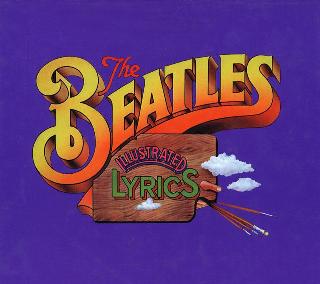Index
Home
Vorige
All Together Now
Composer(s) : Lennon and McCartney
Year : 1967
Chords/Tabs: All Together Now
Notes on "All Together Now" (ATN)
KEY G Major
METER 4/4
FORM Intro -> Verse -> Verse -> Bridge -> Refrain ->
Verse -> Refrain -> Refrain ->
Bridge -> Refrain Refrain -> Outro (w/complete ending)
GENERAL POINTS OF INTEREST
Style and Form
- As it is with many another among the finest examples of classic
entertainment for tots, this song draws a casually artful balance
between its childlike core values and a non-trivial amount of
sophisticated detail thrown in to maintain the interest of the
so-called grown ups in the peanut gallery.
- The list of such twists includes sharp syncopation, uneven phrasing,
surprising wordplay, and an unpredictable form.
- They do a wonderful job of projecting the illusion that the song is
almost being made up from scratch, just for you, and in real time.
The impromptu clowning around that you encounter on the surface, though,
is surely belied by a smoothness of execution that is one of the great
Beatles hallmarks.
- The form defies easy classification among the more typical pop or
folk models we're used to finding. The first part is standard enough,
with two verses for starters followed by a bridge and refrain. The
follow up with a single verse followed by two refrains (and no
intervening bridge), then a bridge (with no preceding verse) followed
by close-to three refrains in a row is where it gets dicey.
Melody and Harmony
- The tune stays in a constricted range and is set syllabically like a
patter song. The talky effect extends into the half-sung antiphonal
parts for backing vocals in the bridge and refrain sections.
- Harmony doesn't get much easier than I, IV, V.
Arrangement
- The broad outlines of the arrangement are carefully coreographed with
only the most superficial of the special effects left somewhat to chance:
Intro: Acoustic guitar
Verse 1: Add single tracked McCartney
Verse 2: Add either a ukelele or mandolin
Bridge: Add bass, drum set, and backing Beatles; drop Paul
Refrain 1: Add fuller "chorus," harmonica, and percussion/bells
Verse 3: Full instrumental backing, restore Paul vocal solo
Refrain 2,3: This time add "honkers"
Bridge: Same as before
Refrain 4,5: Add handclaps in #5
Outro: Note the honker on the trailing edge
SECTION-BY-SECTION WALKTHROUGH
Intro
- The intro provides 8 full measures of the I chord preceded by a
two beat syncopated pickup from below:
3 4 1 2 3 4 ...
F# G|G |...
G: I
- The F# chord chord is merely an appopgiatura and deserves no
Roman numeral of its own. The effect is reminiscent of the
opening of "The Night Before."
Verse
- The verse is a straightforward eight measures in length, closed in
harmonic shape, and uses just two chords:
|G |- |D |- |
I V
4 1 2 3 4 1
|G |- D |- G|- |
I V I
- The syncopation at the end of measure 6 breaks up impending monotony
and is nicely synchronized with the apex of the tune. Even when dealing
with a melodic range of four notes, Paul ends up creating something
that still has an arch-like shape.
Bridge
- The bridge is an asymmetrical ten measures long. This time, the
melodic shape of an upward vector, the final phrase of which is
rhetorically extended two extra measures:
|C |- |G |- |
IV I
|C |- |D |- |- |- |
IV V
- All three chords appear now, and the harmonic shape of the section
is open at both ends; starting on IV and ending with the melodic
climax on V. The final vocal phrase (in measure 8) is syncopated
in another gesture toward avoiding tedium.
Refrain
- The refrain is, again, a four-square eight measures long, using
two chords, and a closed harmonic shape. Again, as well, the tune
describes an arch shape in spite of its narrow range.
|G |- |- |- |
I
|D |- |G |- |
V I
Outro
- The ending features one of those three-strikes-you're-out gambits much
favored by the Beatles. With the tempo suddenly picking up speed, what
starts off as an unusual third consecutive repeat of the refrain is
modified in the fifth measure to provide a complete ending with a
big V -> I finish.
|G |- |- |- |
I
|D |- |- |- |
V
|G |- |- |- |
I
- The message that we're getting very near the end is subliminally
telegraphed by the way in which the harmonic rhythm sudden slows
down right in the face of the otherwise hurtling backbeat.
SOME FINAL THOUGHTS
- When *I* was a boy, grandma taught me a song that whose lyrics
uncannily resonate with the subject of our current study. It
started off something like this:
One, two, buckle my shoe.
Three, four, open the door.
Five, six, pick-up sticks.
... and blah, blah, blah.
- At risk of appearing sex-obsessed, I can report that MY song didn't
contain any lines that were as ambiguously suggestive as the musical
question, "can I take my friend to bed?" Then again, maybe I'm just
one of the older generation leading this country to galloping ruin;
or perhaps, more accurately, I'm preferring that my grandma had been.
Regards,
Alan (awp@world.std.com)
---
"He's very clean." 112298#158
---
Copyright (c) 1998 by Alan W. Pollack
All Rights Reserved
This article may be reproduced, retransmitted, redistributed and
otherwise propagated at will, provided that this notice remains
intact and in place.
Ook op Yellow Submarine:
Ook op Yellow Submarine Soundtrack:
(c) 2024 Serge Girard


 (c) Alan Aldrigde, The Beatles Illustrated Lyrics
(c) Alan Aldrigde, The Beatles Illustrated Lyrics